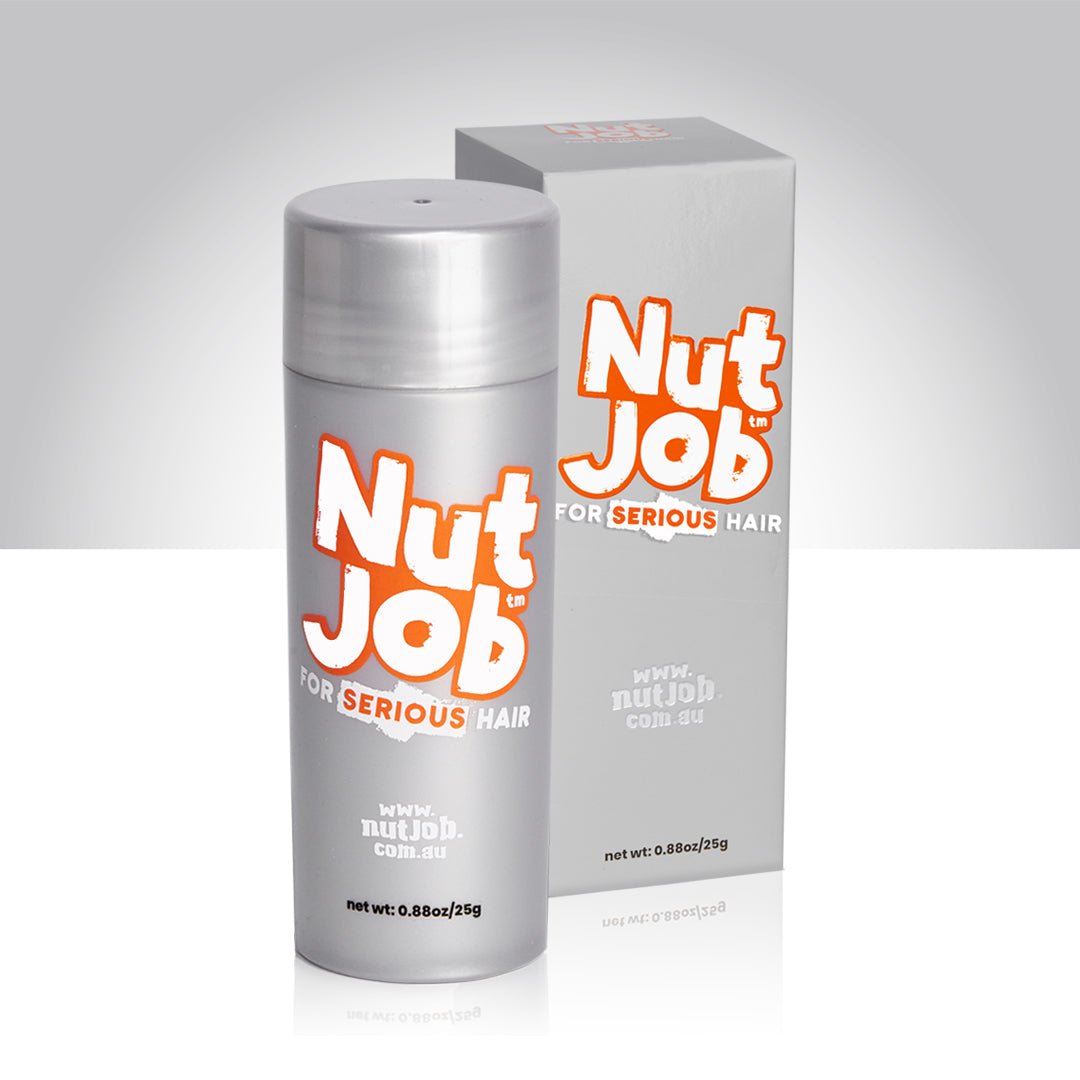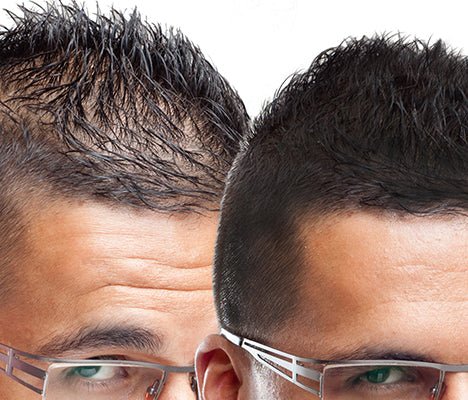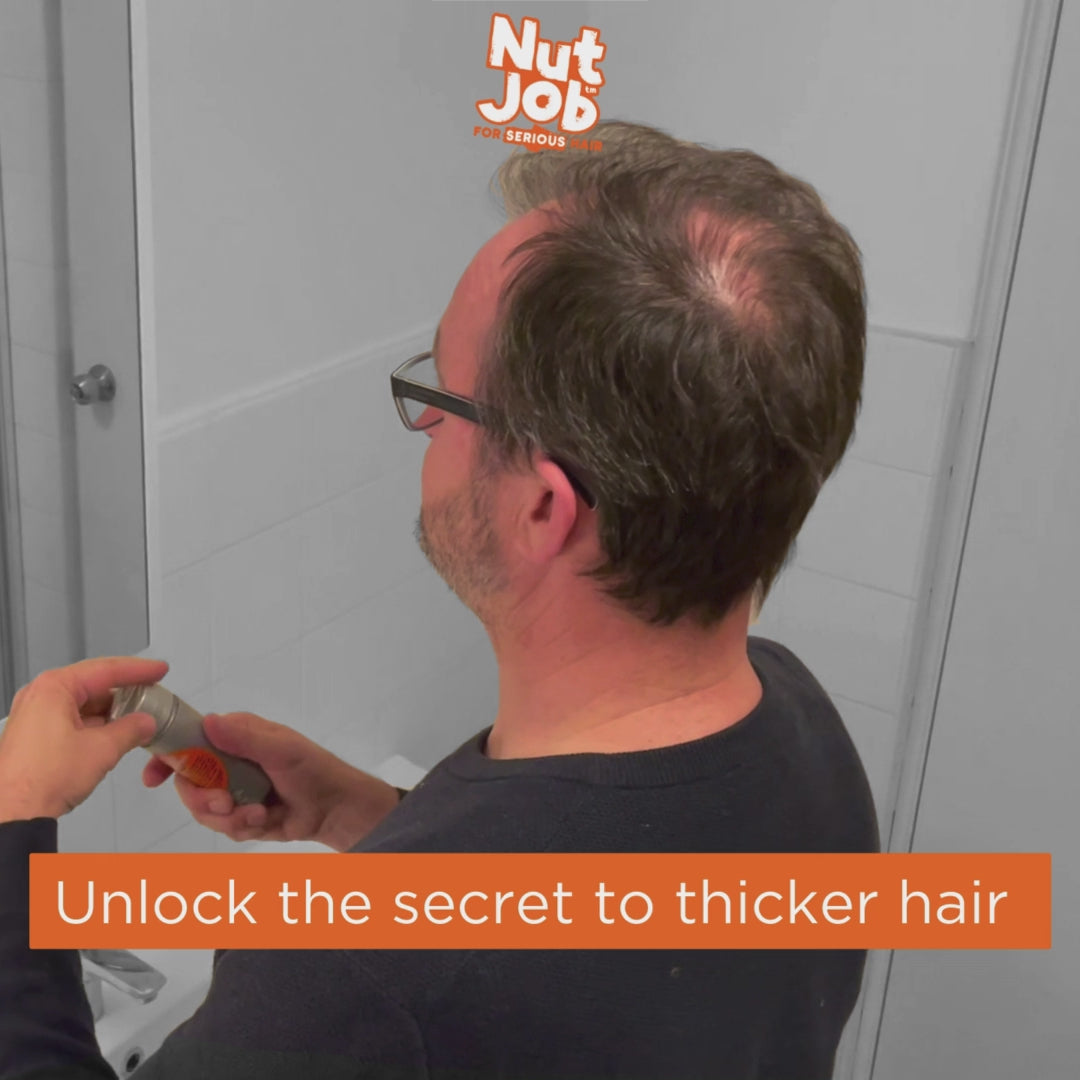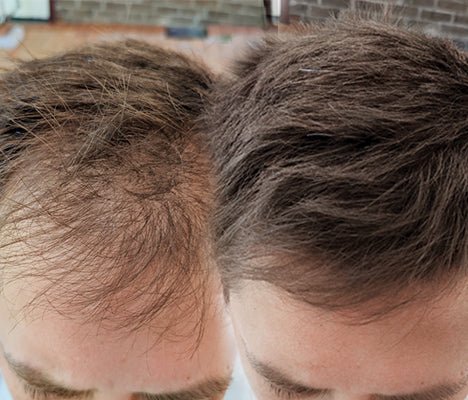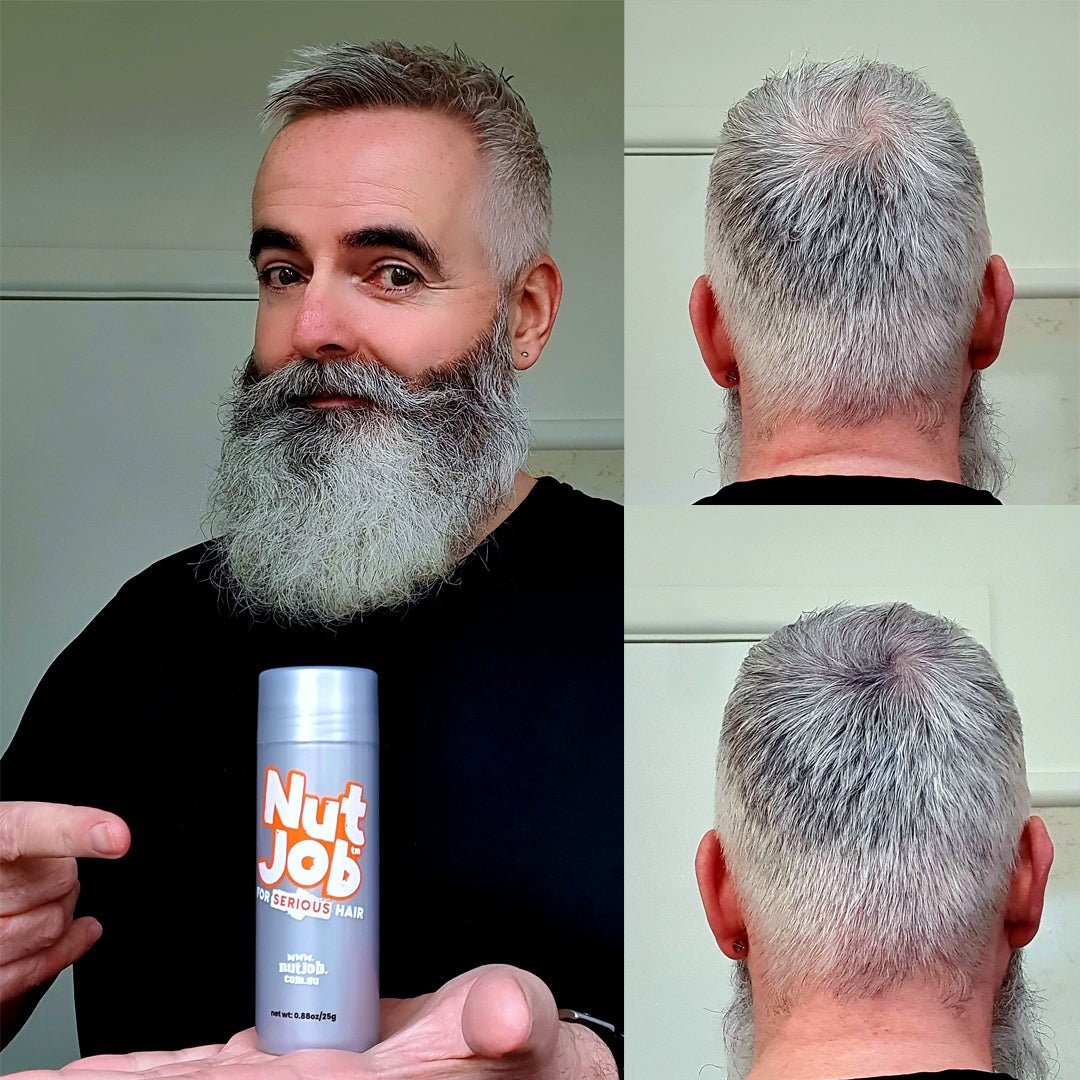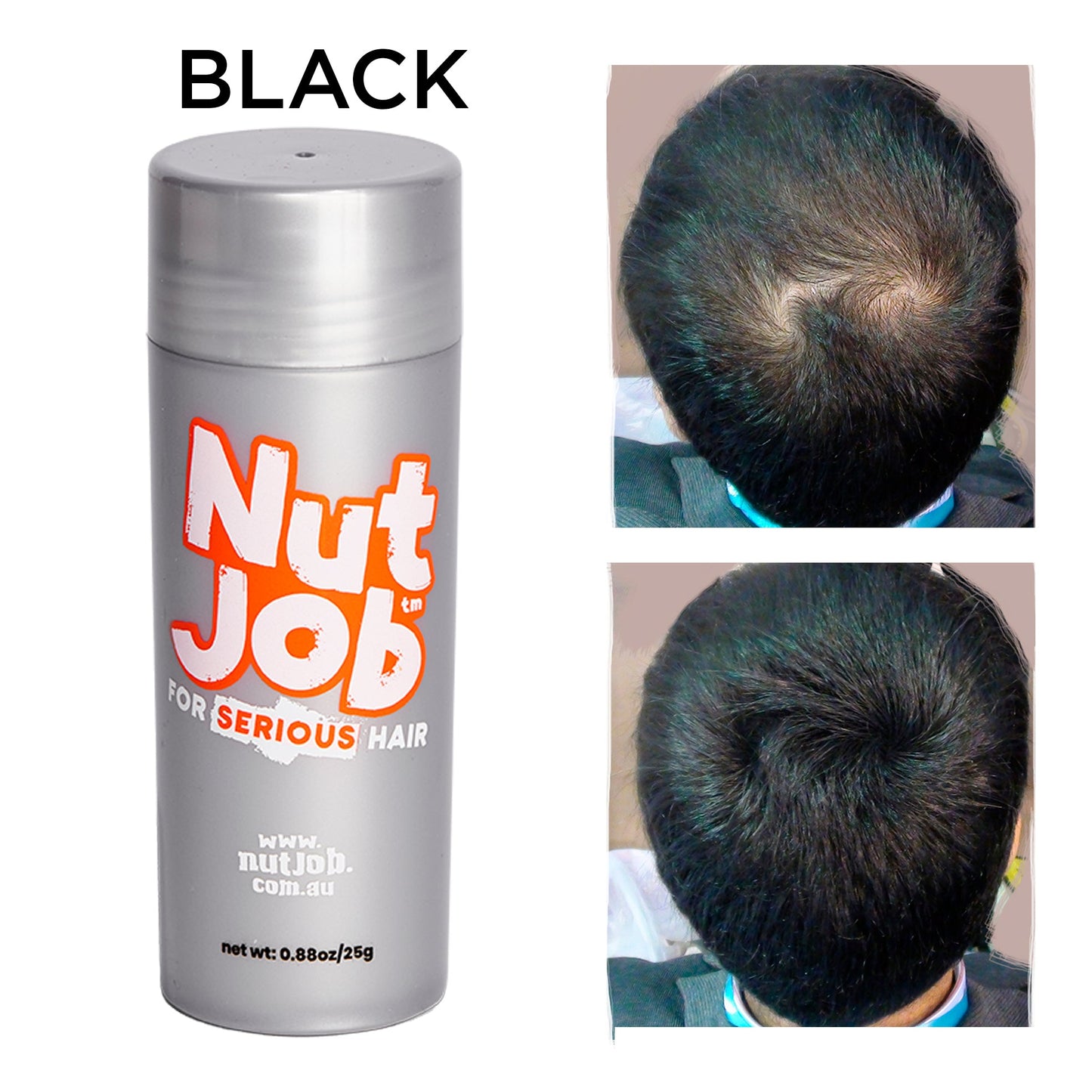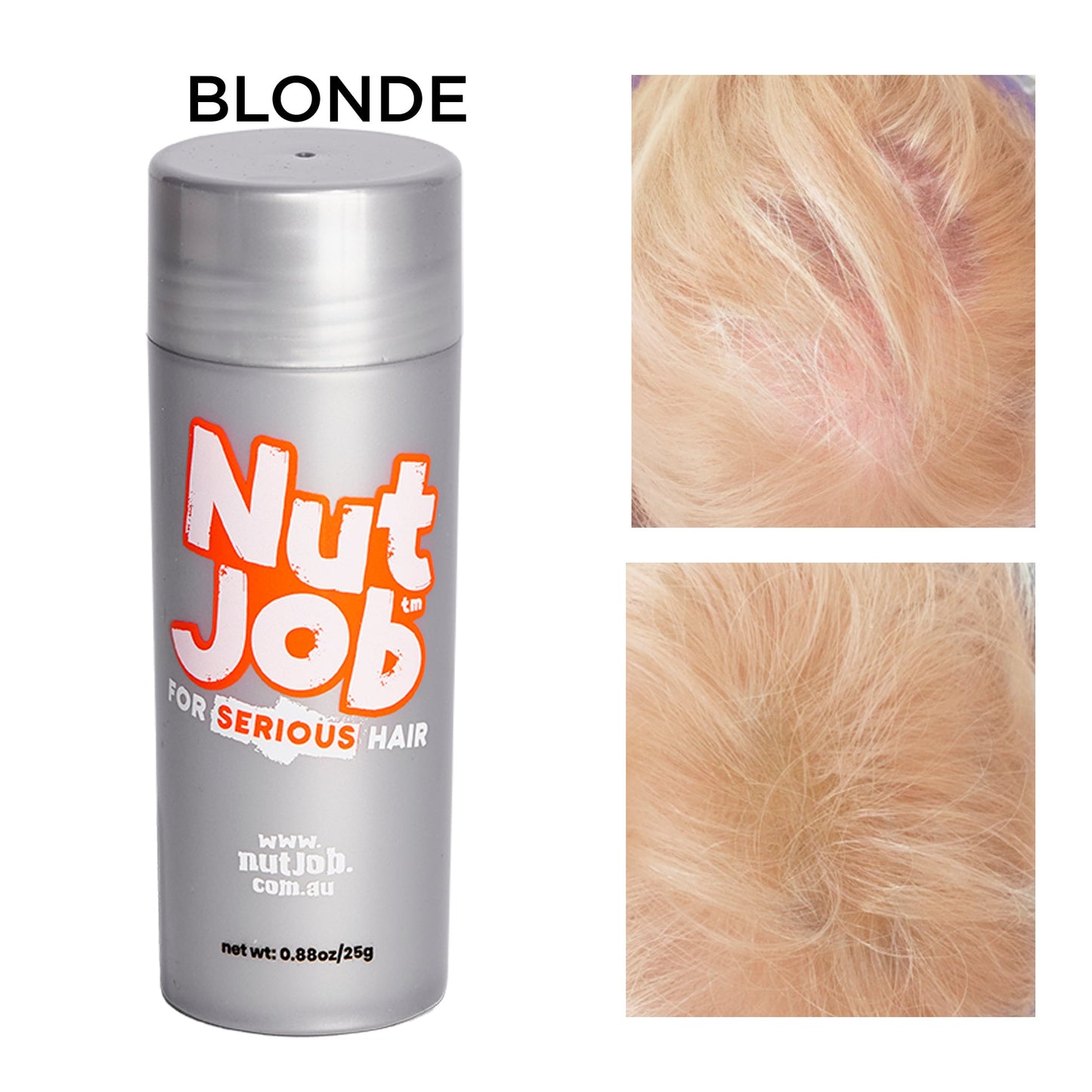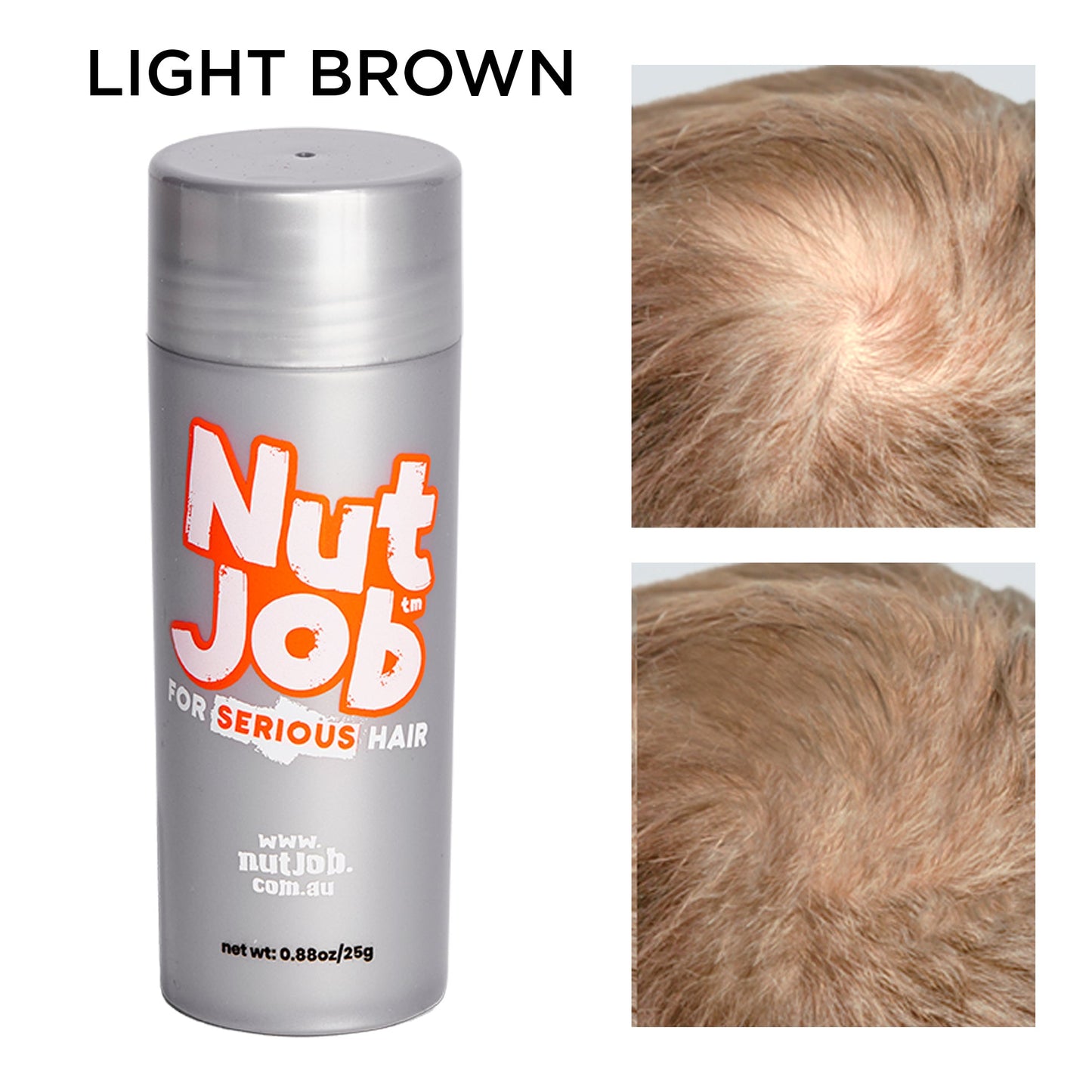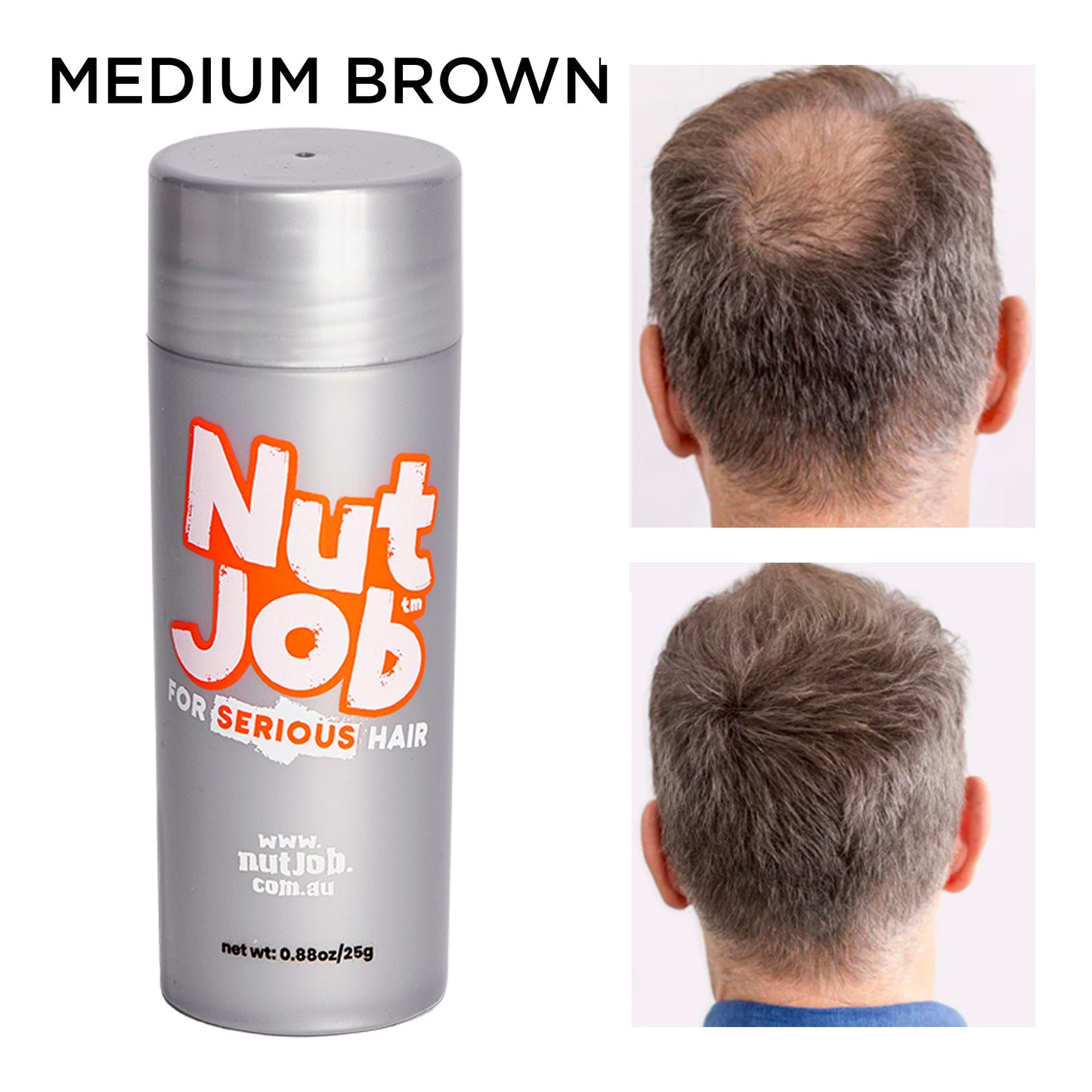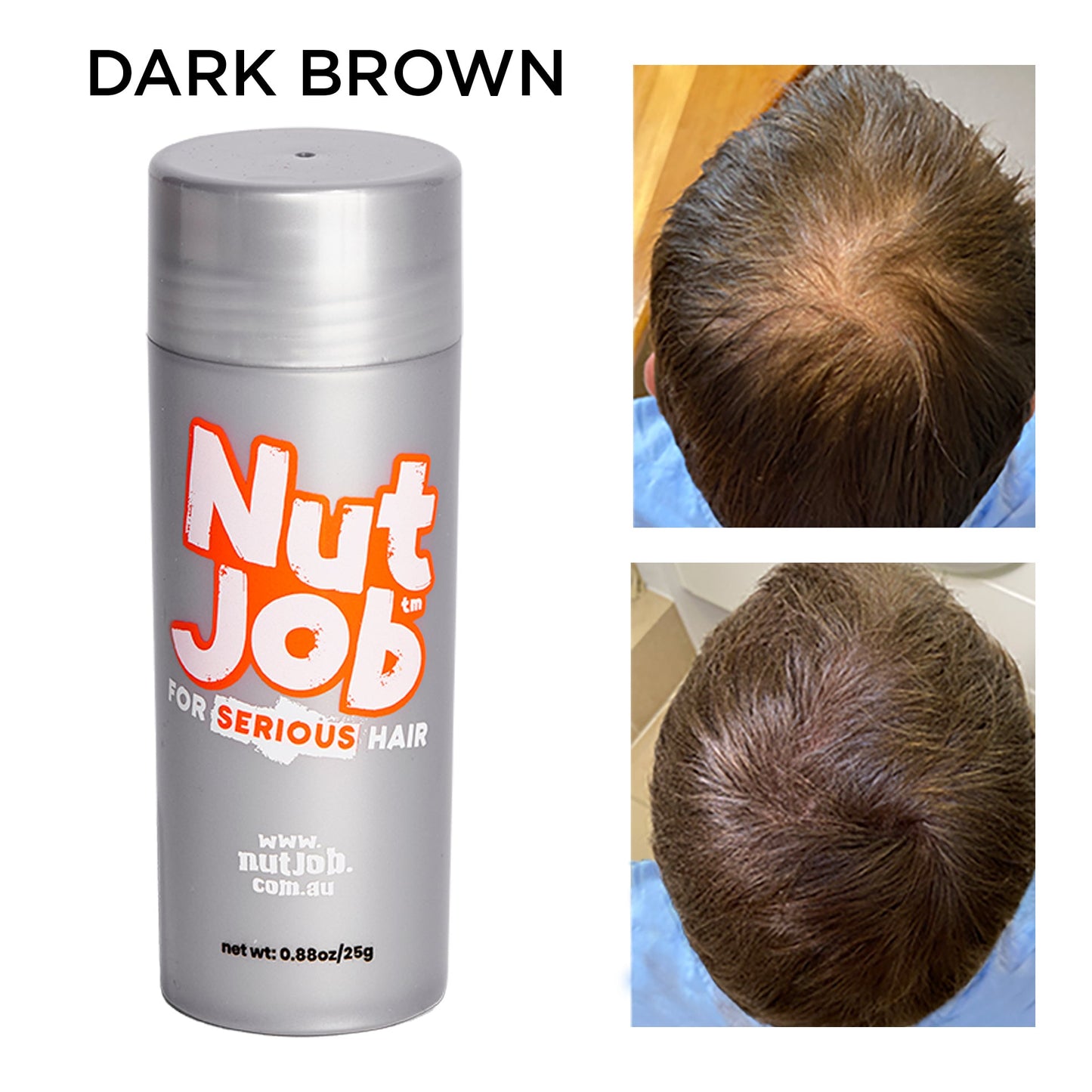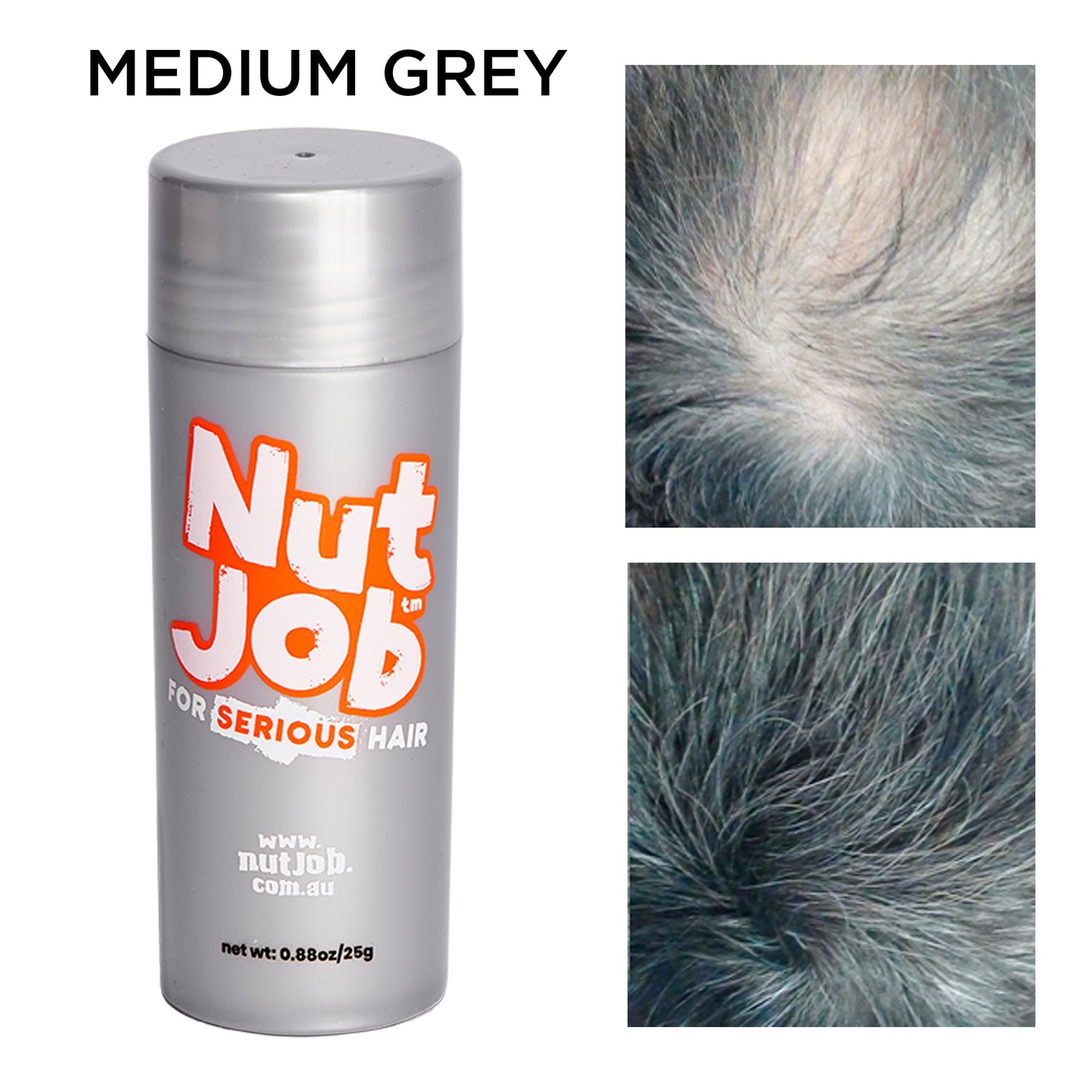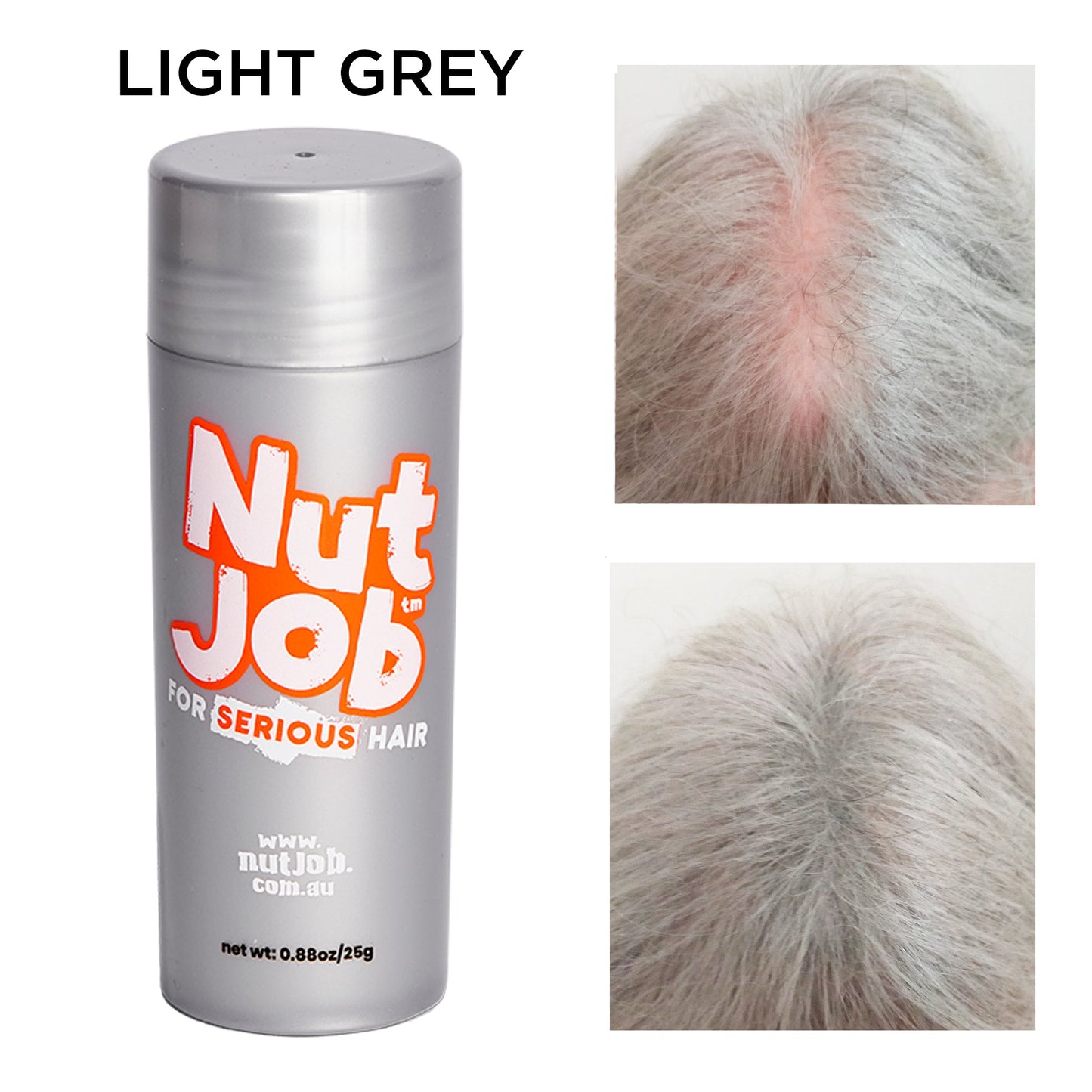
Does Caffeine Shampoo Work for Hair Growth?
The latest hair growth fad is caffeine shampoo, supposedly designed for men experiencing pattern baldness. This so-called remarkable hair growth product contains caffeine as well as 28 ingredients, including foaming agents, perfumes and preservatives.
Regular Nut Job customers and readers will know that we strongly recommend the avoidance of all chemicals for a follically challenged scalp where possible. In particular we suggest you avoid Sodium Laureth Sulfate (SLS), a known hair follicle antagonist, which is listed as the second ingredient after water in Alpecin, the latest caffeine shampoo brand to hit the market.
But we do understand that you may want to jump on the latest bandwagon and try something new. So here we offer the results of our research on this latest caffeine shampoo fad.
Well let’s start with the assumption that if it did work, we could assume that caffeine addicts wouldn’t have a hair loss problem, um… yeah.
Giving it the benefit of the doubt for a moment, let’s assume that the topical application of caffeine – when directly applied to the scalp via shampoo, is totally different to ingesting it via your favourite macchiato.
Indeed, the makers of the product claim that caffeine shampoo penetrates the hair follicle, and once inside the hair follicle, counteracts the harmful effect of DHT (the cause of hereditary hair loss).
According to a paper published by the International Journal of Trichology (aka hair loss experts), in a blind study, when male hair follicles were exposed to caffeine for 120-192 hours (that’s one long shower!), there were some positive benefits seen.
There have been some promising results from a 2012 in vitro study[1]. “In vitro” literally means in glass, ie in a petri dish or a test tube. This study involved taking some scalp samples from males with androgenic alopecia, and exposing them to caffeine. The study reports that the addition of caffeine at a concentration of 0.001% and 0.005% for a minimum of 120 hours, was able to counteract the suppressive effects of testosterone on hair growth.
This has been followed up by another study which assessed the follicular penetration of topical caffeine in hair follicles and was able to prove that hair follicles are a faster route for drug delivery.
A further study assessed the follicular penetration of caffeine in a shampoo for 2 minutes and was able to show some level of follicular penetration.
According to Manish Bansal et al the exact role and efficacy of caffeine in the regrowth and management of hair loss needs further investigation.
The current fad shampoo which has been designed in Germany, is said to stimulate the hair follicle back into hair regrowth, while also reducing scalp tissue inflammation and counteract the damage testosterone does to the skin.
According to the Leukemia Foundation , who have performed their own studies, and who have also read the scientific data on this subject “the results are not promising actual hair growth”. Yes, we agree.
Not surprising then, [2], the makers of Alpecin were banned in the UK from claiming in their advertising that the product can reduce hair loss after the Advertising Standards Authority UK (ASA) ruled there was no adequate evidence to support that claim.
The ASA commented “Taking into account the body of evidence as a whole, we considered that we had not seen any studies of the actual product as used by consumers on their scalp using an accurate and objective analysis of hair growth, in a well designed and well conducted trial”
Of course with all these things, there are side effects which range from hair colouring to yep, you guessed it... hair loss!.
The studies we have found were using 0.001% caffeine, yet it appears that the main brand of caffeine shampoo is using a 5% concentration of caffeine. It appears that too much caffeine can have the opposite effect. Note also that many of the active ingredients in this shampoo have other known side effects such as skin irritation & allergies, eye irritation, hormone disruption and damage to hair follicles which, yes, can be harmful to hair growth.
In addition, many users of Alpecin report their hair changing colour and this is no surprise given the list of ingredients published by the manufacturer include some well-known colorants: CI 60730 CI 42090, these are cosmetic colorants for blue and violet.
From what we know about hair loss, there can be many contributing factors to male pattern baldness. We can suggest seeking professional medical advice before trying and buying any ‘hair growth’ products on the market.
Of course, we also recommend using Nut Job Hair Fibres to instantly bulk hair up. Nut Job is made from 100% natural cotton, has no side effects and makes an instant and noticeable difference.
Surprisingly, the best ingredient in shampoo for hair growth is Peppermint Oil.
Mentha Piperita is a vasodilator proven in clinical studies * (see below) to increase circulation, increase the thickness of the dermal layer, increase the number of active follicles and increase overall follicle depth. Nut Job Peppermint Hair Growth Stimulating Shampoo can improve hair growth and prevent further hair loss when used every day.
Try Nut Job Peppermint Hair Growth Shampoo today. Your follicles will thank you.
[1] https://www.ncbi.nlm.nih.gov/pmc/articles/PMC3500065/
[2] https://www.independent.co.uk/news/uk/home-news/alpecin-caffeine-shampoo-banned-reduce-hair-loss-advertising-standards-authority-a8276951.html
https://www.ncbi.nlm.nih.gov/pmc/articles/PMC4289931/
The study concludes: "These results suggest that PEO [Peppermint Oil] induces a rapid anagen stage and could be used for a practical agent for hair growth without change of body weight gain and food efficiency."
